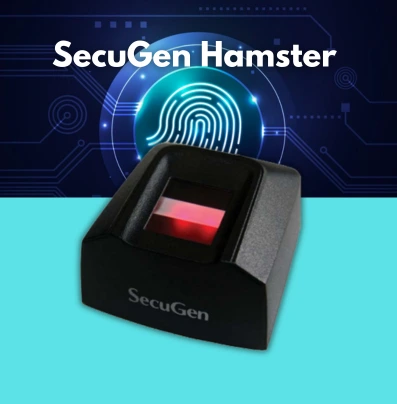
Top 4 L0 Devices Available in the Market
The Unique Identification Authority of India has extended the deadline for phasing out L0 biometric devices up to June 30, 2025. And therefore, many organizations are changing over to this new system. Thus, the market is filled with biometric devices apart from ensuring the latest standards of L1 technology that ensure enhanced security, accuracy, and operational efficiency. Whether a business, government institution or service provider, the right biometric device must be selected to fit in with the mandates of the regulatory level and enhance a little further the overall experience of the user. In this blog, we will focus on five of the best-in-class biometric devices on the market that you can bank upon till the close of this year when L0 devices become obsolete.
Mantra MFS100 L0 USB Fingerprint Scanner
Features:
- Certification: FBI PIV-071006, STQC, CE, FCC, and RoHS.
- Compatibility: Windows 10 and above, Android 7+.
- Communications: USB interface.
- Key Capabilities: Advanced scanner capabilities support crypto operation It accommodates a more precise and safe biometric matching and identification. Combining that with an ergonomic design, this model is good enough to withstand even challenging conditions and proves IP54-grade dust and water resistance. Conforms to UIDAI standards and stands as one of the best solutions for authentication processes in government, banking, and commercial businesses.
Why Choose It?
In comparison to the MFS100, MFS100 is an advanced model. It provides improved biometric performance as well as stronger cryptographic operations for full security. Its security capabilities make it extremely reliable for fingerprint recognition. This gives it a niche position for application in places that require strict identity checks, such as banks and government institutions.
Morpho MSO 1300 E3 RD L0 Single Fingerprint Biometric Device
Features:
- Certifications: STQC, FBI PIV IQS.
- Compatibility: Windows 8 and later, Android 7+.
- Key Capabilities: Morpho MSO 1300 e3 is one of the most advanced security and identity verification devices on the market. From Idemia, the product ensures secure enrollment, authentication, and identification with safe data transmission and protection in highly sensitive ecosystems.
Why Choose it?
This Morpho MSO 1300 e3 will be quite desirable to use in a bank, government, and other sectors that require high levels of security for your data. As far as compliance with RD services at a very high level of security is concerned, this makes it perfect for Aadhaar authentication and eKYC procedures.
Startek FM220U L0 Fingerprint Scanner
Features:
- Certifications: STQC, MOSIP L0, UIDAI L0.
- Compatibility: Windows 10 and later, Android 7+.
- Communication: USB.
- Key Capabilities: It also provides critical capabilities that include secure biometric authentication. This is primarily meant to be used in environments for SIM activation and can, therefore, be applied in digital signature certification DSC and government ecosystems. FM220U secures biometric data through the best encryption, making it very reliable for any range of identification processes.
Why Choose It?
The safe design of the Startek FM220U makes it used across industries, being able to meet the severe authentication demands of government programs. Among the most trustworthy biometric solutions, it meets the processes of eKYC, Aadhaar-enabled services, and secure digital signings.
SecuGen Hamster Pro 20 AP
Features:
- Certifications: STQC, FBI.
- Key Capabilities: This portable, USB fingerprint reader is characterized by high image quality, dust and waterproof (IP65 certified), as well as rejection technology against fake fingers. Its technology can print high-quality fingerprint images regardless of the situation, which is especially important in the most serious sectors.
Why Choose it?
The SecuGen Hamster Pro 20 AP would make it suitable for organizations that expect a reliable and portable biometric scanner. So, the IP65 rating makes it even more suitable in tough environments, and it sure will ensure that those fingerprints are registered safely and accurately using its technology on fake finger rejection.

Why the Transition from L0 to L1 is Necessary
Better security, recognition and compliance at a higher level with regulation is the driving factor for the transition of UIDAI’s L0 to L1 devices. L1 devices use advanced encryption technology that guards biometric data against any sort of compromise. With more and more services now dependent on biometric authentication from eKYC, AEPS (Aadhaar Enabled Payment System), attendance systems, and other services-the transition will ensure that all sections of the socio-economic spectrum are better enabled to face the growing cyber threats and data breaches.
L1 technology provides better response times, which becomes quite important for large-scale applications that require swift authentication. It also gives an additional deadline of June 30, 2025, so businesses have enough time to gradually switch over the L0 devices to the more secure L1 devices without hampering the business.
Discontinuation of L0 older biometric devices for Aadhaar authentication
Device-model | DEvice Name | Name of manufacturer | Validity |
MSO1300 E2/ E3 L0 | Idemia Morpho | Smartchip India Pvt Ltd | 01-05-2025 |
HU20A | Secugen | Secugen India Pvt Ltd | 01-05-2025 |
MFS100 | Mantra | Mantra Softech (India) Pvt Ltd | 01-06-2025 |
FM220U | Access | Access Computech Pvt. Ltd | 01-06-2025 |
HU20AP | Secugen | Secugen India Pvt Ltd | 01-07-2025 |
PB510 | Precision | Precision Biometric India Private Limited | 01-07-2025 |
Impact of the Ban on L0 Devices
The government has officially banned L0 biometric devices. In such a scenario, it becomes extremely crucial for organizations still dependent on L0 technology to switch over to L1 devices forthwith. Using L0 devices post-deadline will make organizations non-compliant with UIDAI regulations and is likely to further disrupt services reliant on Aadhaar authentication.
The other reason is that since L1 devices are much more secure, the prohibition of L0 devices will highly minimize breaches in the biometric systems, especially within the sensitive sectors of banking and governmental services. An upgrade to L1 devices also ensures that the biometric information is handled in a much more secure and encrypted manner, thus minimizing fraud and misuse.
Conclusion
The upgrade of L1 biometric devices is a step towards compliance but toward the enhancement of operational security, speed, and efficiency. Devices like Mantra MFS110, Morpho MSO 1300 e3, and Startek FM220U are expected to be front-runners in the marketplace in terms of accuracy, high-security features, and user-friendliness. As the organizations close in on the June 30, 2025 deadline, they should transition to these far more modern devices in such a manner that it would serve to be fully compliant and protected against future risks.
With an appropriate biometric device, your organization will be ahead of the game, safeguarding sensitive data, and will also have an effortless authentication experience for its users.
FAQ’s
What are the environmental benefits of upgrading to L1 devices?
Advanced L1 devices also make them environmentally responsible since they will consume less energy and lower the release of greenhouse gases. Effective use of efficient devices, therefore, promotes reduction in waste, renewable energy resources, and safe recycling of e-waste. It has enabled IoT monitoring to real-time information usage for enhancing operational processes, therefore, it is more beneficial for environmental purposes as well.
What are some top L1 biometric devices currently available in the market?
Mantra MFS 110, Morpho MSO 1300 e3, and Startek FM220 are some of the popular biometric L1 models. These include Precision PB1000 and SecuGen Hamster Pro 20 which are widely popular due to the strong security and advanced features of the device with reliable performance in quite a few applications.
What is the difference between L0 and L1 biometric devices?
The main difference is that the encryption and signing of data are processed in L1 over L0 biometric devices. Here, L0 encrypts and signs data on the host with optical sensors, while L1 does it on the scanning device with capacitive sensors to achieve better accuracy and performance, thus resulting in enhanced security, lower rejection rates, improvement of user experience, and compliance with UIDAI regulations. UIDAI has made a provision wherein the L0 devices are required to be phased out from July 1, 2024, and an L1 device is accepted.
Why is UIDAI phasing out L0 devices?
UIDAI is pulling out L0 fingerprint devices to make Aadhaar more secure. L1 devices have higher accuracy and encryption rates than L0 devices with fewer authentication failures. UIDAI has decided to withdraw all L0 fingerprint devices by September 30, 2024. All users will have to upgrade to L1 devices for using Aadhaar. Details may be obtained on the UIDAI website.
